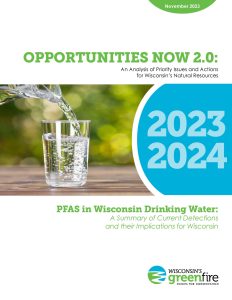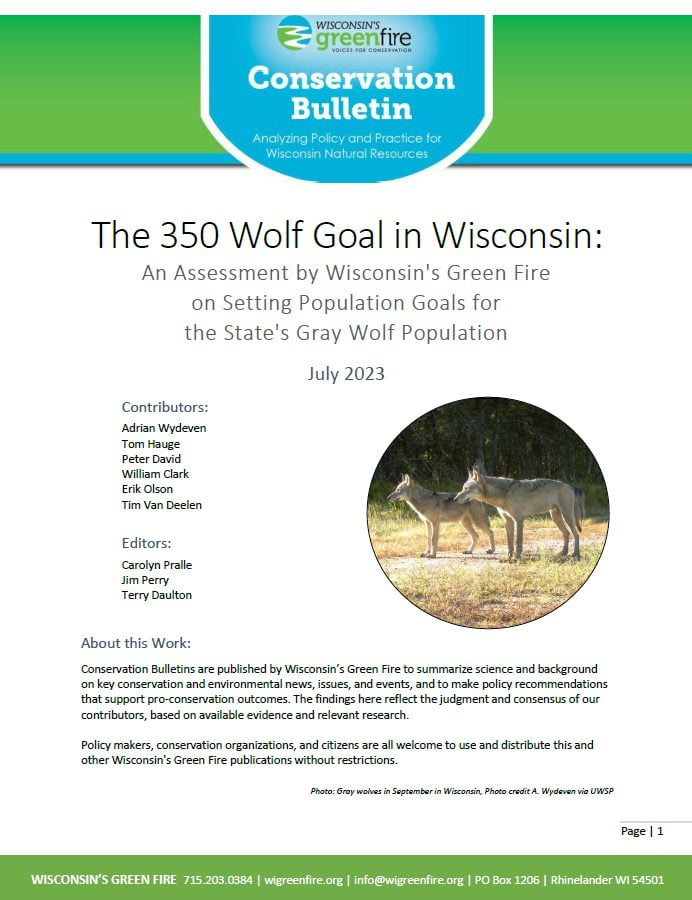Welcome to Wisconsin's Green Fire: Voices for Conservation
Wisconsin’s Green Fire supports our conservation legacy by promoting science-based management of natural resources.
recentevents

December 27th, 2023
WGF 2023 Annual Meeting
On Dec. 27th, 2023, Wisconsin’s Green Fire held our 6th Annual Meeting via Zoom. During the meeting, we shared updates on WGF’s work in the past year, reflected on conservation successes across Wisconsin, and shared plans for the year ahead.
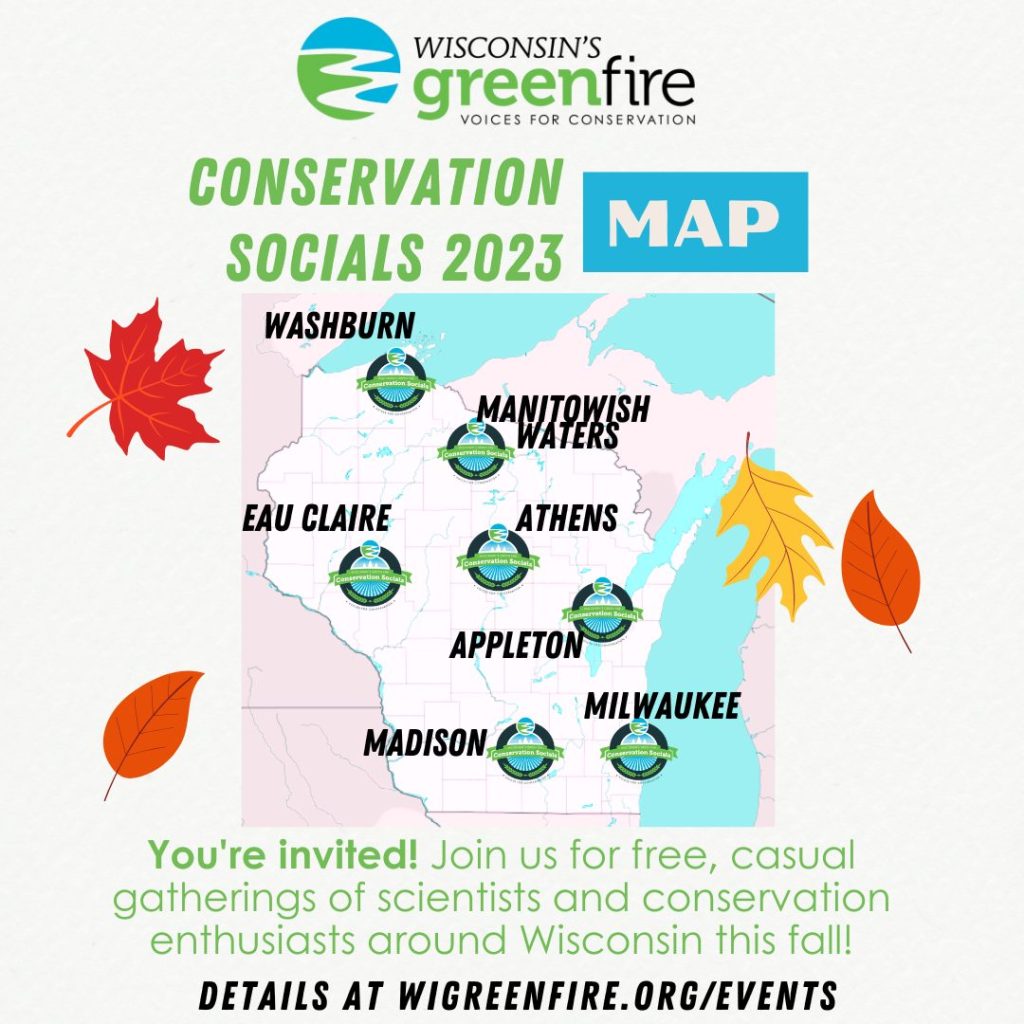
September & October 2023
2023 Conservation Socials
Join us for our annual conservation socials at seven locations around the state this fall! Come connect and socialize while enjoying local drinks and food, all in the name of preserving Wisconsin's natural resources.
During each social, you'll have the opportunity to learn about WGF's impactful work and discover how you can get involved. Students and early-career professionals are welcome, as is anyone who cares about conservation!
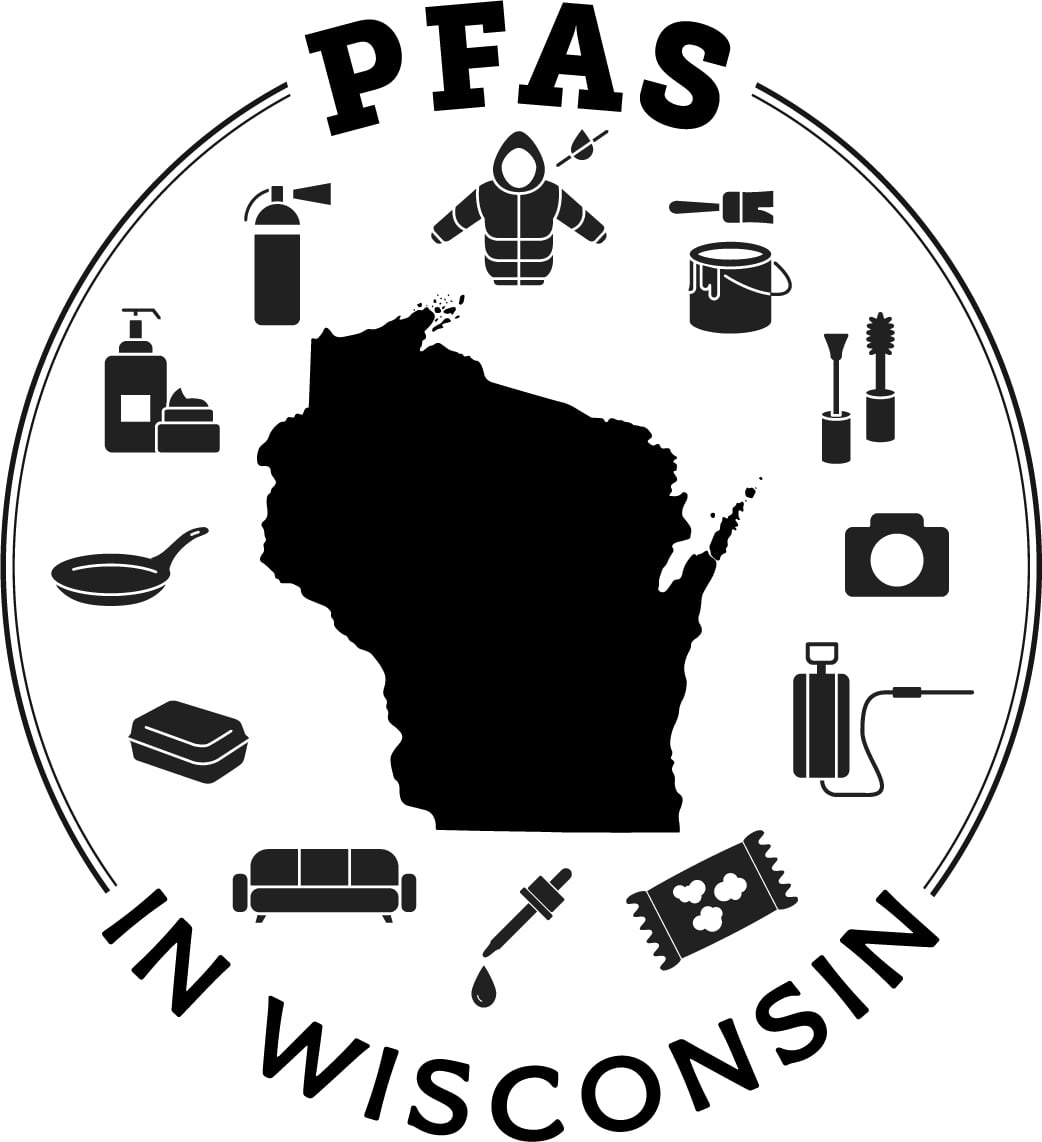
May 2, 2023
2023 'PFAS in Wisconsin: Policy and Practice for Local Government Leaders' Conference
Over 100 local government leaders attended the PFAS in Wisconsin: Policy and Practice for Local Government Leaders conference hosted by Wisconsin’s Green Fire in partnership with the Wisconsin Department of Natural Resources (WDNR), University of Wisconsin-Madison Extension, the Wisconsin Towns Association, the Wisconsin Counties Solid Waste Management Association, Madison Metropolitan Sewerage District, and Wisconsin Counties Association. The collaborative workshop prepared local leaders to understand, respond, and act to protect their communities from the risks of per- and polyfluoroalkyl substances, commonly referred to as PFAS, or the “forever chemicals.”
View the presentations and more information here.
View the recordings of all sessions here.
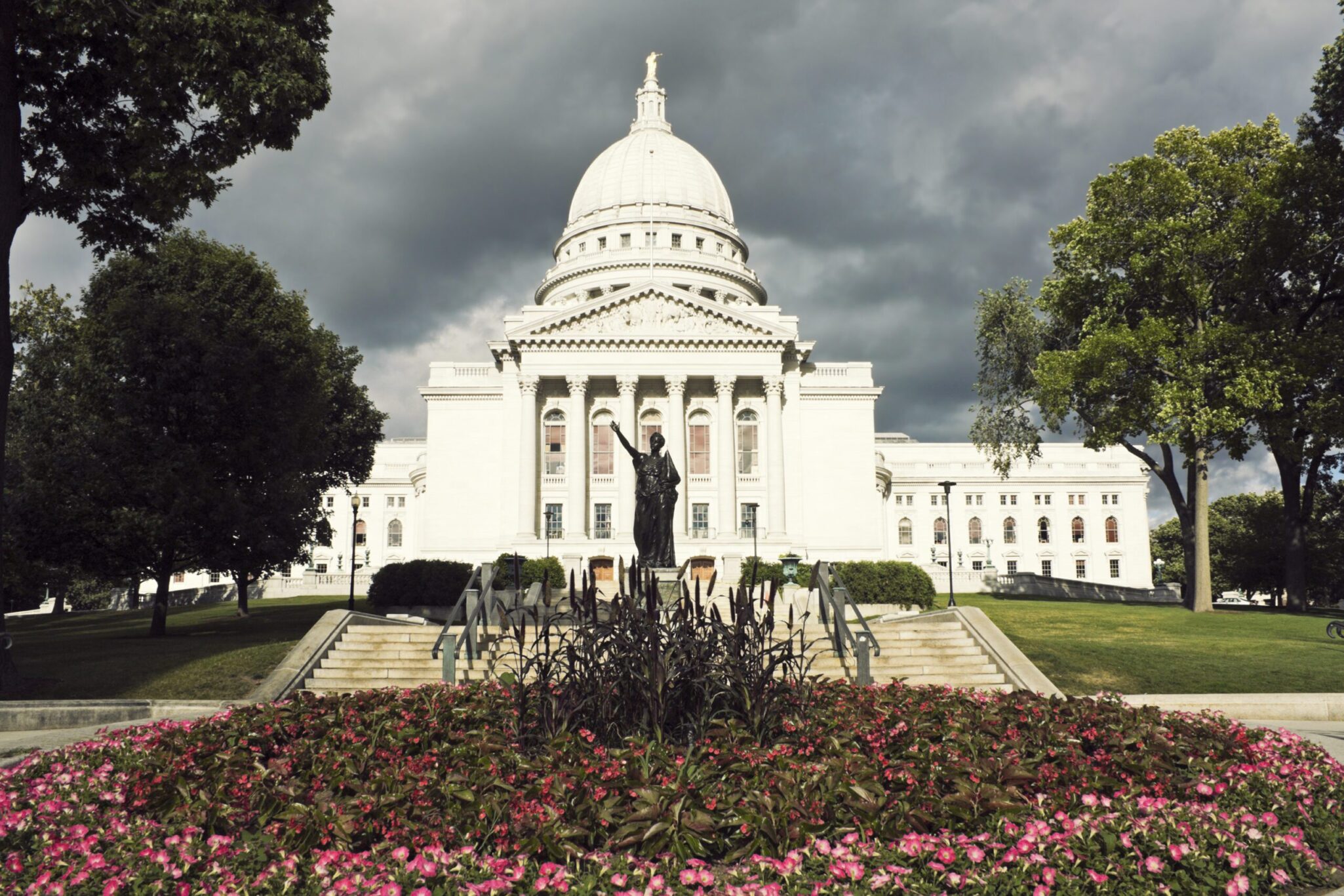
January 10, 2023
Imbalance of Power League of Women Voters Webinar
On January 10th, 18 Wisconsin League of Women Voters chapters hosted a webinar that focused on WGF's recent report, Imbalance of Power: How Wisconsin is Failing Citizens in Conserving Natural Resources and Protecting our Environment. The program highlighted the shift of power that has occurred over the last 10 years between state’s three branches of government—legislative, executive, and judicial—established in the constitution as co-equal branches. The panelists used examples to illustrate the impacts of the shift, and outline specific actions and policy changes to help bring back the balance of power in Wisconsin.
Panelists included:
- Fred Clark: WGF Executive Director
- Paul Heinen: WGF Legislative Liaison
- Mark Thimke: Environmental Attorney
recentwork
Illegal Deaths and Injuries to WI Large Wild Birds
This Phase 1 report by WGF Wildlife Work Group member Kerry Beheler organizes five years of data from Wisconsin wildlife rehabilitators on deaths and injuries to non-hunted large birds like eagles, hawks, cranes, and loons.
Opportunities Now Reports
Wisconsin's Green Fire has released six Opportunities Now reports since 2021, each outlining policy recommendations on various natural resource topics across Wisconsin. The latest report is from November 2023 on PFAS in Wisconsin drinking water.
2023 Program Highlights
Explore our achievements from our programs in 2023. We're proud to recognize the work of our member-experts who make these accomplishments possible. We ask for your support to continue this great work in 2024!
Conservation Bulletin: The 350 Wolf Goal in Wisconsin
Our assessment of "the 350 goal" for wolves examines this contentious population goal originating from the WDNR's 1999 wolf management plan. The report outlines the original intent and history of the 350 goal, changes in scientific understanding and public attitudes toward the wolf population in the state, wolf depredation on domestic animals, and future management of gray wolves in Wisconsin.
Concerned about Wisconsin's natural resources?
Become a Supporter of Wisconsin's Green Fire Today!


